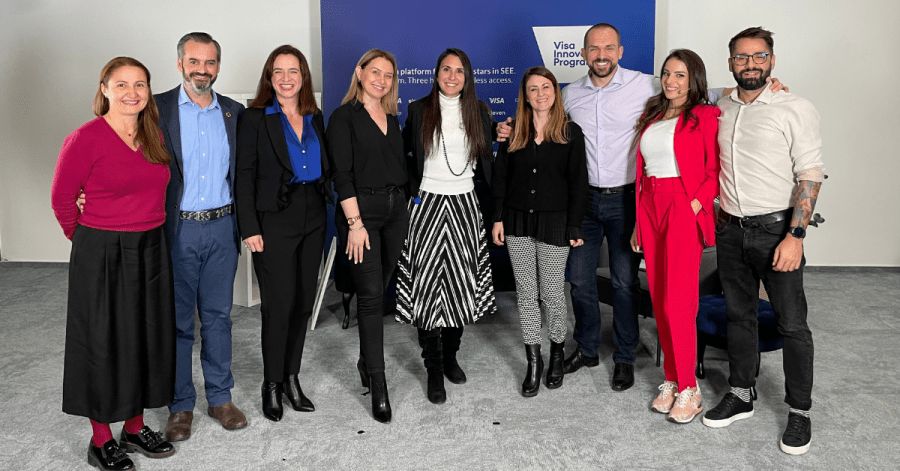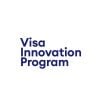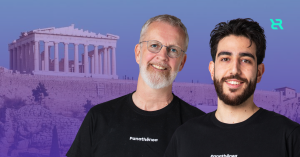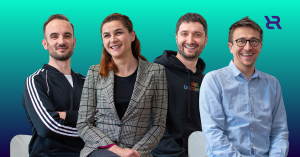After 500 hours of virtual meetings and hands-on fintech experience on financial literacy, buy now-pay later, wealth management, open banking, and urban mobility, the third cohort of the Visa Innovation Program officially graduated on the Demo Day held on the 1st of December 2021.
During the hybrid event, the 18 startups that participated in the latest cohort presented how they have progressed during the last couple of months thanks to the curriculum and networking opportunities of the Program.
Featuring the pitches of the founders, discussions panels with partners of the Visa Innovation Program, a keynote speech from Marni Kruppa, Head of fintech Europe, Visa, and a fireside chat with Hristo Borisov, co-founder and CEO of Payhawk, the event enjoyed the attendance of over 50 investors and more than 180 attendees in total.
Find out what were the main highlights from the event, what has been the biggest value-added for the founders, and the main impressions of Visa, Eleven Ventures, Crowdpolicy, and Hackquarters representatives.
Open Innovation and emerging fintech leaders
“Since its inception three years ago, the Visa Innovation Program has evolved and has grown in prominence, delivering numerous opportunities for cross-border partnerships and collaborations between startups, merchants, banks, and Visa, resulting in more than 40 Proof-of-concept and pilot projects completed,” said Daniel Tomov, managing partner at Eleven Ventures.
He referred to the case of Payhawk, a Visa Innovation Program alumnus who managed to build a cutting-edge product, grow operations across Europe, and close a record high Series B investment round in the spend management industry across Europe with a market valuation of $570M. All this in less than three years.
Both open innovation and building relationships with promising newcomers in the fintech field were highlighted as the biggest value that Visa was getting from working with early-stage startups.
“Visa has been around for over 60 years, and even though there is a lot of innovation happening internally, being closer to new entrants to the market, keeps us on our toes. It gives us a fresh perspective and relevant new ideas to act on. By helping emerging innovators, we are able to help collectively scale that new innovation and transform the market. So, I think it’s all about maintaining relevancy and close partnerships to where innovation is really happening. That’s the exciting part about working closely with startups,” Marni Kruppa shared.
According to another representative of Visa, Catalin Cretu, General Manager for Bulgaria, Croatia, Romania, and Slovenia, the open innovation approach has proved to be successful and it has made Visa a partner of choice for one of the most innovative entrepreneurs in the fintech space.
“The Program enables access to our network, technology, and experts and acts as an ongoing support system for all startups engaged with us in their growth journeys. It also builds significant innovation capacity for our clients and partners, helping them to navigate the digital world easily and with more confidence,” he added.
And when it comes to the value-added for the banks which are partners of the program, Vladislav Lazarov, Supervisor Cards and Digital Payments Projects at Raiffeisen Bank Bulgaria shares that: “From the perspective of banks, learning and partnerships go two ways. On the one hand, banks have access to fresh ideas, innovative technologies, as well as to efficient and disruptive practices, which tend to make people’s lives easier. On the other hand, we work with established infrastructure, so we are seeking to learn through partnerships with fintech companies,” Lazarov explains.
The value-added for the founders
The third cohort of Visa Innovation Program alumni received some growth inspiration from Hristo Borisov, CEO and co-founder of Payhawk – a company that was part of the first season of the program.
“Joining the Visa Innovation Program was a very pivotal moment for us because we were just two months old and we had four people on the team. The main idea behind joining the program back then was to meet with more people and understand how everything in our target industry works,” Borisov remarked.
When it comes to the value that Visa brought to the fresh graduates, Valeria Vahorovska, founder and CEO of Fondy, highlighted that the tailor-made format of the Program and the design thinking support allowed her team to stay focused on their core business while working on a very practical case for Visa Direct’s integration.
“For us at Haso, Visa Innovation Program has been instrumental for the dialog and the cooperation with major financial institutions, investors, and other important stakeholders,” added Serdar Kodal, Co-founder and CEO at Haso, the buy-now-pay-later startup for unbanked and unbanked people in the emerging markets.
What comes next?
To bring in a funny and engaging note, the organizers of the event included a voting competition in which the attendees online were able to choose one of the 18 startups from the cohort as the winner of the following categories: The Mars Conqueror Startup, The Salvage Startup, and the Unicorn Startup. Wonder what these categories mean and who the audience awarded?
The Mars Conqueror Startup challenge was won by the Romanian open banking startup Finqware as it was deemed to be the best-suited startup to take its solution to Mars someday. The Salvage Startup, which would be able to save humanity after a zombie apocalypse, was awarded to the Turkish FineDine – an AI-driven ordering platform for restaurant operators. And last but not least the startup which was thought to have the biggest potential to become a unicorn and won the Unicorn Startup competition was the Turkish startup for cash management open banking solutions, Paratic.
Until we witness whether these predictions would actually become true, stay tuned for the beginning of 2022 when the Visa Innovation Program will open the applications process for its Season 4.








